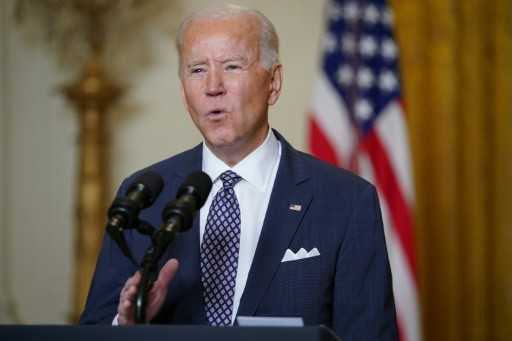Biden declares America, trans-Atlantic alliance 'back'
20 February, 2021

U.S. President Joe Biden declared the "trans-Atlantic alliance is normally back again" Friday in a robust speech wanting to reestablish America as head of the West against what he called a worldwide assault on democracy.
The address to the gross annual Munich Security Conference -- held by video website link as a result of the COVID-19 pandemic -- dovetailed with German Chancellor Angela Merkel's welcoming of a return to "multilateralism" after the confrontational years of Biden's predecessor Donald Trump.
Making his first key international address on overseas policy since getting president in January, Biden explained classic U.S. allies should once again have confidence in Washington's leadership.
"I'm sending a crystal clear message to the universe: America is back again. The trans-Atlantic alliance is normally back," he explained from the White House.
"The United Says is set, determined to reengage with European countries, to talk to with you, earn back our location of trusted leadership," he said.
Biden, who earlier spoke to leaders from the G-7 golf club of wealthy democracies, said his administration was again stressing alliance building, as opposed to Trump's isolationist policies and abrasive treatment of U.S. partners.
"Our partnerships have endured and grown through the years because they're rooted on the richness of our shared democratic values. They're certainly not transactional. They're certainly not extractive," Biden said in clear reference to Trump's focus on redefining allies as economic rivals.
Collective strength, Biden stated, may be the only way to achieve success when a worldwide contest between democracy and autocracy is at an "inflection point."
"In too many places, including in European countries and america, democratic progress is under assault," Biden said.
"Historians will examine and write about this minute. It's an inflection level. And I consider with every ounce of my staying that democracy must prevail."
Biden said he had not been seeking a go back to "the rigid blocs of the Freezing War," insisting that the international network must work together on issues just like the coronavirus pandemic and climate change, even where deep disagreements exist on other concerns.
The return of the United States -- effective Friday -- to the Paris climate agreement was proof Washington's intentions, he said.
"We can no more delay or perhaps do the smallest amount to address climate modification," Biden stated, calling this a "global existential crisis."
But Biden delivered harsh warnings about the threats he explained are posed by Russia and China.
"The Kremlin attacks our democracies and weaponizes corruption to try and undermine our bodies of governance," he said. President Vladimir Putin "seeks to weaken the European task and our NATO alliance."
Again urging Western unity, Biden said, "it's so much easier for the Kremlin to bully and threaten individual says than to negotiate with a solid, closely united transatlantic community."
Similarly, U.S. companions should stand along against "the Chinese government's monetary abuses and coercion that undercut the foundations of the intercontinental monetary system," he said.
"Chinese companies ought to be held to the same normal" as U.S. and European corporations facing onerous limitations on their occurrence in China, he stated.
On Iran, Biden reiterated his pledge to come back to overseas negotiations with Tehran over its nuclear course, but said "we should address Iran's destabilizing actions over the Middle East."
Biden's pivot is getting good reviews in Europe.
Speaking to reporters after the previous G-7 virtual summit, Germany's Merkel said "it is clear that multilateralism might once again have a more powerful chance."
"Specifically multilateralism is boosted through the modification in the U.S. federal government -- the Biden administration has already demonstrated this using its primary decisions" on returning to the Paris climate accord as well as lending support once more to the World Well being Organization, she said.
She also echoed Biden's warning about Russia, telling the Munich conference "it is rather important that we create a transatlantic policy toward Russia."
Source: japantoday.com
TAG(s):
